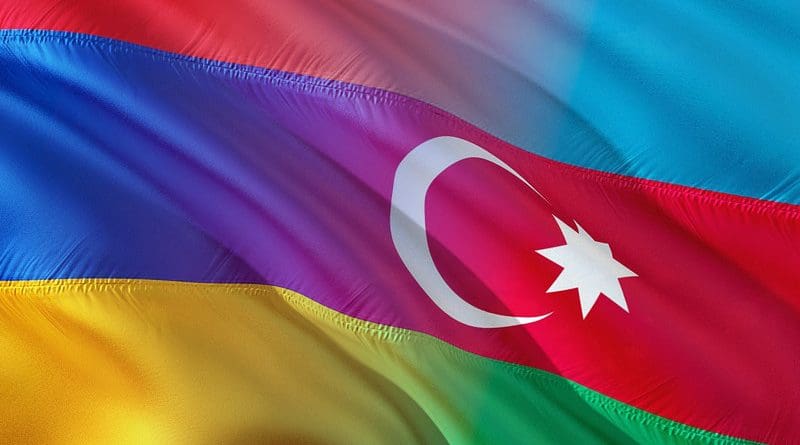Azerbaijan-Armenia Relations Moving Forward Again – OpEd
By Arab News
By Yasar Yakış
Azerbaijani President Ilham Aliyev and Armenian Prime Minister Nikol Pashinyan met on Feb. 17 during the Munich Security Conference. It was a nice surprise that both leaders were able to make it to Germany.
There is now a thaw in Azerbaijani-Armenian relations. Using this opportunity, German Chancellor Olaf Scholz facilitated a meeting and personally participated in it. This was followed by a bilateral meeting between Aliyev and Pashinyan. The two leaders agreed on a number of issues, including the continuation of the peace talks between their countries and the demarcation of borders. It appears that Pashinyan was not fully happy with Aliyev’s hinting at the question of demarcation of the borders, but we have to admit that the dust cannot be swept under the carpet indefinitely.
With the end of Armenia’s occupation of Nagorno-Karabakh, a new window of opportunity is open in the region. It is important not to let this window close again. In this advice, there is also an allusion to encourage Azerbaijan to be more forthcoming.
Pashinyan may be counting on the support of the strong Armenian diaspora in the US during the presidential election at the end of this year. The Armenian diaspora in Russia is also strong, but we do not know how Moscow will use this leverage. One has to admit that Azerbaijan also has stakes in its hand and will probably use them when the opportunity arises.
The question of the Meghri corridor is one of the thorniest issues between Azerbaijan and Armenia and perhaps the most difficult to solve. Article 9 of the ceasefire agreement brokered by Russia President Vladimir Putin in November 2022 states: “All economic and transport connections in the region shall be unblocked. The Republic of Armenia shall guarantee the security of transport connections between the western regions of the Republic of Azerbaijan and the Nakhchivan Autonomous Republic in order to arrange unobstructed movement of persons, vehicles and cargo in both directions.”
The future status of the Meghri corridor could not be defined more clearly than that.
During a live broadcast that Pashinyan made and that lasted several hours, he said he was convinced that the only thing that can ensure 100 percent peace is a lasting “de jure fixed binding peace.” He claimed that the trilateral ceasefire did not specifically mention the Meghri corridor. The name “Meghri” may not be mentioned in the text, but an entire paragraph of the ceasefire agreement was exclusively about this corridor. The corridor will facilitate transport links between Russia, Georgia and Iran on the one hand and between the Nakhchivan exclave and Azerbaijan on the other. In addition, it will also facilitate the connection between Turkiye and — through the Caspian Sea — the Central Asian states.
Two days after the Munich Security Conference, another important meeting was held in Ankara between Turkish President Recep Tayyip Erdogan and Aliyev. In this meeting, Erdogan reiterated his full support for the signing of a peace treaty between Azerbaijan and Armenia. He said: “There is no doubt that the signing of a lasting peace agreement between Azerbaijan and Armenia will be a new source of hope for peace and stability in our region and the world.”
A few hours before the Erdogan-Aliyev meeting, the spokesman of the Azerbaijani Foreign Ministry made an important point that should not be missed. According to the Armenian Constitution, the Nagorno-Karabakh territories that have been taken back by Azerbaijan are still shown in Armenian maps as belonging to Armenia. Hopefully, adjustments will be made in due course.
Other issues of cooperation were also raised in the meeting between Erdogan and Aliyev.
The Gaza war and other developments in the international arena have put Pashinyan in a difficult position because, under pressure from Washington and Paris, he last year ratified the jurisdiction of the International Criminal Court to bring charges against Putin, meaning Yerevan would be obliged to arrest the Russian leader should he visit the country. On Feb. 2, Pashinyan announced that he would no longer rely on Russia’s protection and that Armenia had to have a new defense structure. This further exacerbated Moscow’s attitude toward Armenia. This is a major shift in Armenia’s attitude.
Substantive negotiations have recently been initiated between Azerbaijan and Armenia. They are being held in various Gulf countries. When the two countries are left alone, they make more progress in their talks. Problems arise when the Armenian diaspora in France and the US pour fuel on the fire.
Since the last Nagorno-Karabakh war of 2020, the Council of Europe has played a negative role by raising human rights issues in Azerbaijan. The Parliamentary Assembly of the Council of Europe has initiated a procedure to suspend Baku’s membership, claiming that human rights violations were committed during the clashes. However, the atrocities committed by Armenians exceeded by far what was done by Azerbaijanis. On Feb. 26, 1992, for example, 613 defenseless Azerbaijanis suffered untold atrocities and were killed.
Turkiye has strongly opposed the suspension of Azerbaijan but some members of the council seized this opportunity to criticize both Ankara and Baku at the same time. Such an attitude will not lead the Council of Europe anywhere. Even if Azerbaijan’s membership of the Council of Europe is suspended, it could survive without being a member.
The initiative of the Council of Europe may also negatively affect the reconciliation process that was launched between Azerbaijan and Armenia.
A new era may be dawning in the Caucasus, but it has to be handled with the utmost care.
- Yasar Yakis is a former foreign minister of Turkiye and founding member of the ruling AK Party. X: @yakis_yasar

